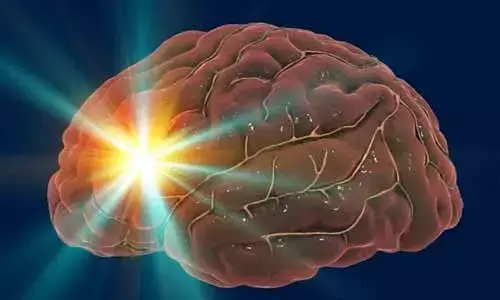- Home
- Medical news & Guidelines
- Anesthesiology
- Cardiology and CTVS
- Critical Care
- Dentistry
- Dermatology
- Diabetes and Endocrinology
- ENT
- Gastroenterology
- Medicine
- Nephrology
- Neurology
- Obstretics-Gynaecology
- Oncology
- Ophthalmology
- Orthopaedics
- Pediatrics-Neonatology
- Psychiatry
- Pulmonology
- Radiology
- Surgery
- Urology
- Laboratory Medicine
- Diet
- Nursing
- Paramedical
- Physiotherapy
- Health news
- Fact Check
- Bone Health Fact Check
- Brain Health Fact Check
- Cancer Related Fact Check
- Child Care Fact Check
- Dental and oral health fact check
- Diabetes and metabolic health fact check
- Diet and Nutrition Fact Check
- Eye and ENT Care Fact Check
- Fitness fact check
- Gut health fact check
- Heart health fact check
- Kidney health fact check
- Medical education fact check
- Men's health fact check
- Respiratory fact check
- Skin and hair care fact check
- Vaccine and Immunization fact check
- Women's health fact check
- AYUSH
- State News
- Andaman and Nicobar Islands
- Andhra Pradesh
- Arunachal Pradesh
- Assam
- Bihar
- Chandigarh
- Chattisgarh
- Dadra and Nagar Haveli
- Daman and Diu
- Delhi
- Goa
- Gujarat
- Haryana
- Himachal Pradesh
- Jammu & Kashmir
- Jharkhand
- Karnataka
- Kerala
- Ladakh
- Lakshadweep
- Madhya Pradesh
- Maharashtra
- Manipur
- Meghalaya
- Mizoram
- Nagaland
- Odisha
- Puducherry
- Punjab
- Rajasthan
- Sikkim
- Tamil Nadu
- Telangana
- Tripura
- Uttar Pradesh
- Uttrakhand
- West Bengal
- Medical Education
- Industry
Restless Leg Syndrome, novel sleep index may help predict Stroke recurrence

Researchers in Sweden have found in a new study that sleep-wake disturbances can predict which stroke survivors are at a greater risk of recurrence.A novel sleep burden index incorporating sleep duration, insomnia, apnea, and restless legs syndrome predicted subsequent cardiovascular or cerebrovascular events after acute stroke.
Stroke patients suffering from a greater level of sleep-wake disturbances, which includes events such as insomnia and restless leg syndrome had twofold higher risk of additional cardio-cerebrovascular events in the following 2 years than people with lower scores.
The findings were presented at the 2020 European Academy of Neurology (EAN) Congress, which was held as a virtual meeting due to the COVID-19 pandemic.
The researchers recruited 438 acute stroke patients, 85% with ischemic stroke and 15% with transient ischemic attack (TIA). The age of patients included in the study from 21-86 with a mean age of 65 years. Investigators also noted 64% of this cohort was male. The patients included in the study had data related to stroke characteristics, cardiovascular risk profile, and sleep-disordered breathing recording during the acute phase through interviews, standardized questionnaires, and respirography.
Out of a total of 438 patients included in the study, 85% suffered an ischemic stroke and 15% suffered a transient ischemic attack (TIA). In regard to sleep-wake disturbances, 8% of patients were classified as having restless leg syndrome, 26% suffered from severe sleep-disordered breathing, and 15% reported extreme sleep durations.
The researchers found that a higher sleep burden index was associated with a greater risk of subsequent cerebro-cardiovascular events (OR, 2.10; 95% CI, 1.34-3.30; P <.01). Additionally, results suggest stroke survivors who suffered a subsequent event had higher sleep index burden scores than those who did not (Wilcoxon rank-sum test P <.01).
Although interventional trials investigating the benefit of treating sleep-wake-disturbances after stroke are needed, Dr Simone Duss author of the study, said that sleep-wake disorders, should be more systematically assessed and considered in comprehensive treatment approaches in stroke patients.
For further reference log on to:
European Academy of Neurology:
Duss S, et al "Sleep-wake disturbances after acute stroke predict a higher risk of subsequent cardiocerebro-vascular events" EAN 2020; Abstract 2078.
Dr Kamal Kant Kohli-MBBS, DTCD- a chest specialist with more than 30 years of practice and a flair for writing clinical articles, Dr Kamal Kant Kohli joined Medical Dialogues as a Chief Editor of Medical News. Besides writing articles, as an editor, he proofreads and verifies all the medical content published on Medical Dialogues including those coming from journals, studies,medical conferences,guidelines etc. Email: drkohli@medicaldialogues.in. Contact no. 011-43720751


